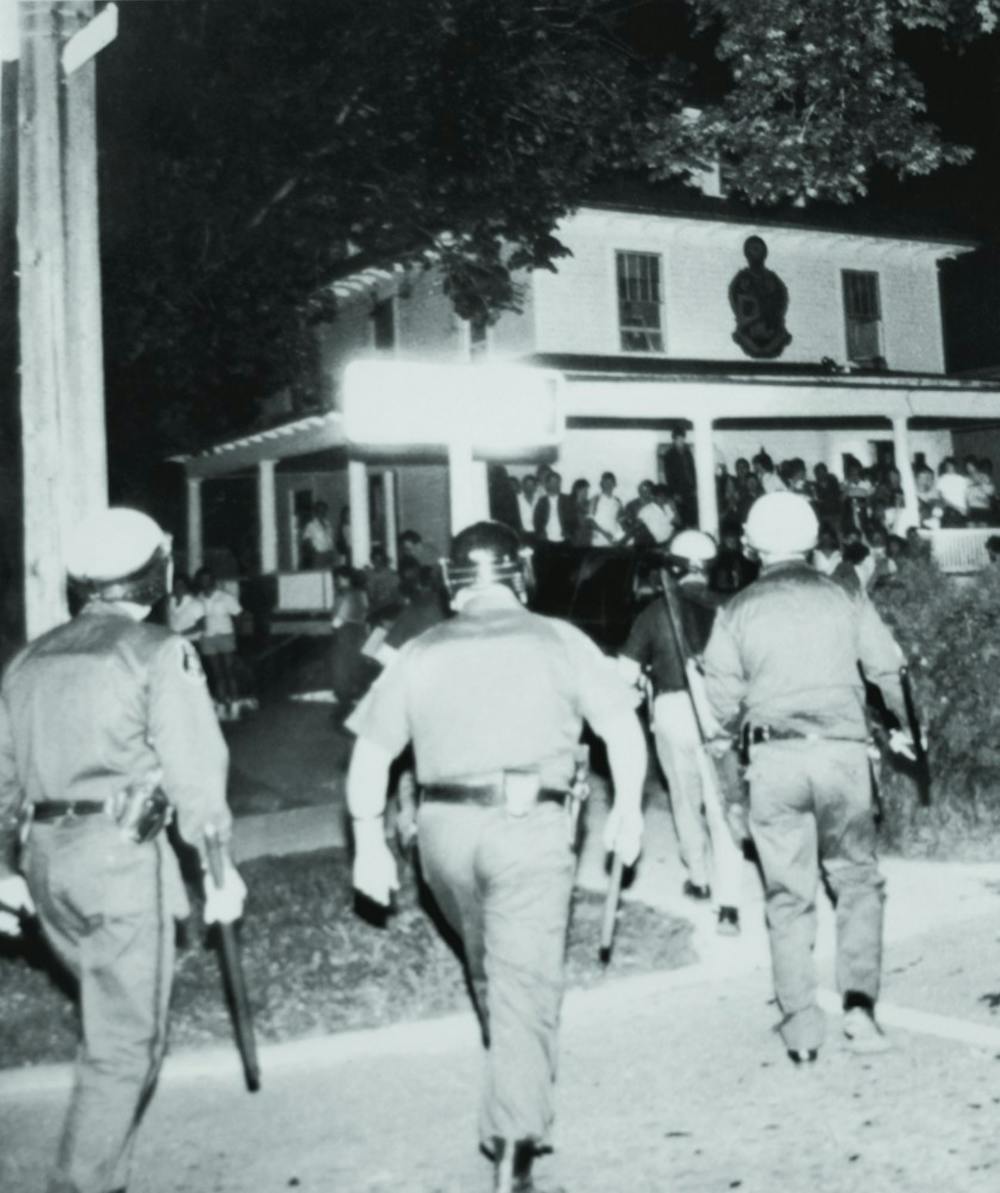Residents fear 'End of the World' party culture returning to student neighborhoods
For decades, longtime Mount Pleasant residents have watched with skepticism as Central Michigan University and city officials attempt to tame student partying.
Some view city and university approaches to stopping wild parties before they start as “half measures,” without the force necessary to set a clear standard of behavior.
Peter Koper, a retired CMU English professor, is one of those residents.
“The university has to get to work (quelling student behavior) in a serious way or it is going to get worse,” said Koper, who has lived in Mount Pleasant since the 1970s. “They keep trying half measures. Things go in cycles, and no one is out burning cars, but the cycle is pronounced and it’s building again.”
Koper’s description is a reference to a series of out-of-control parties that beset the CMU community between the late 1980s and early 1990s. The "End of the World" parties began at 1 p.m. on the last day of spring semester exams.
Mount Pleasant Police Officer Jeff Browne said the city sees the "End of the World" mentality slowly creeping back in, so staff wants to control it before it becomes more than Mount Pleasant can handle.
"None of us want to go back to that," he said. "(That was) a time when couches were burned, people were flipping cars and the streets were blocked off. We know what it looks like when it's out of control because we've seen it. This last year, we started getting on the cusp of it."
For many years, Koper said CMU didn’t know how to deal with the parties. One year brought on a 50-person melee in the streets; another party shut down six blocks on Main Street.
“It became so bad that any student with the bare minimum of competence knew their behavior was diminishing the reputation of the university and the reputation of their degrees," Koper said."It was real bad, and on CNN. It got national attention.”
At some point, Koper recalled, University President Leonard Plachta had enough. His response: an overwhelming build up of state police force on CMU property and in downtown neighborhoods.
"He had the state police set up a post behind Finch Fieldhouse," Koper said. "He arranged nearly 40 of them. By 6 p.m., police vehicles snaked through the neighborhoods. It was calm after that intervention for many years."
Indeed, things did change. Rose Forton and her now-deceased husband have owned the same house on Franklin Street since 1951.
In the '80s, Forton said students would routinely host nusiance parties and "run up and down the street" at all hours of the night. In the last few decades, Forton said that has all but stopped on her side of town.
"I don't hear them as closely to my house as I did then," Forton said. "If I do hear them, they're over (on Main Street)."
With memories of crazed gatherings, Forton is hopeful the "End of the World" mentality won't return to CMU.
Koper is far less optimistic. Until the university is willing to enact bold steps, he said, the cycle will continue.
"These decisions (to act poorly) are an accurate reflection of the type of educational experience they’re receiving at CMU," he said. "If their intellectual candles were lit, they wouldn't be out rioting.
"With a bit of moral imagination and authority, the university could show force and stop it without violence. Shows of force do work. Plachta understood that."




